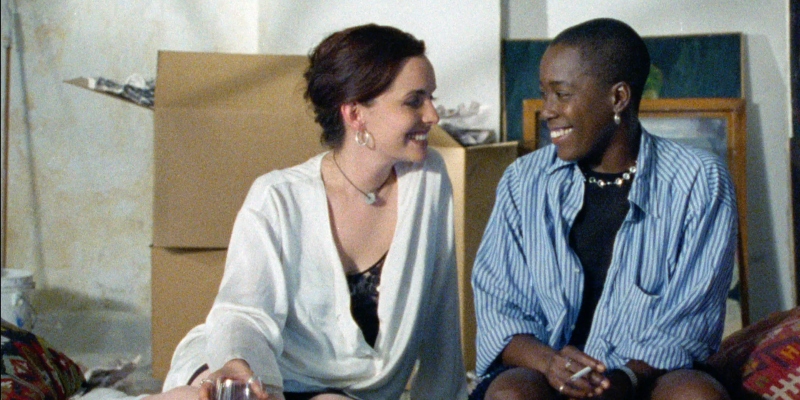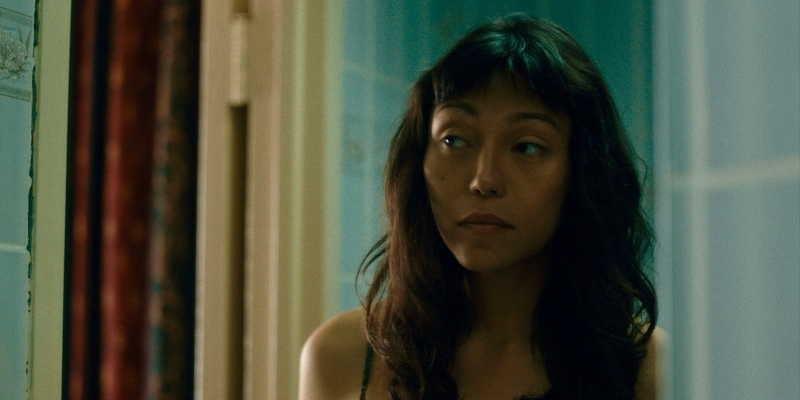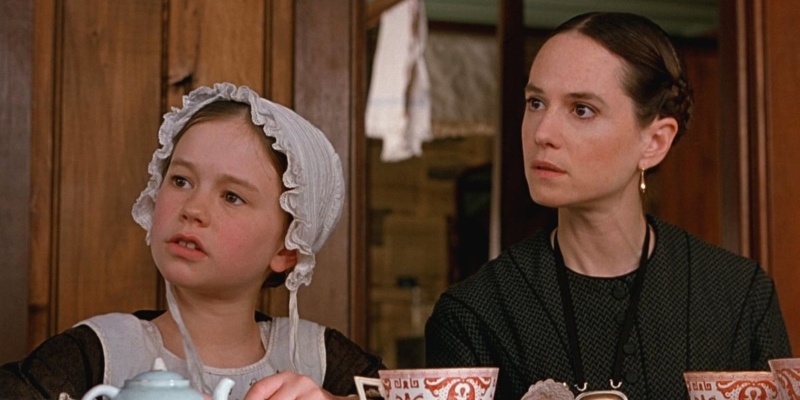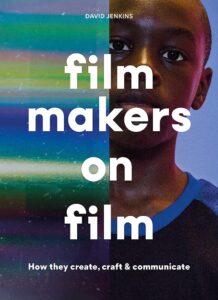
8 Women Directors from Around the World You Should Be Watching
David Jenkins on Ava DuVernay, Isabel Sandoval, and More
If you type the words “Great Film Directors” into Google, you have to scroll past 45 portraits of male filmmakers before you read the first woman: Kathryn Bigelow. Many of the great books which survey the important film directors of our time are tethered to an old guard canon where it pays to be a man.
With Filmmakers on Film, we set out to disrupt the conventional thinking about who gets to make films and who should be celebrated for that fact—and the aim of this was not just in the name of enforced diversity, but to actually acknowledge the expanded richness of a film culture where work is being made by a mix of genders, and not just by people with white skin.
*

Vera Chytilová
Born: 1929 / Nationality: Czech
The brilliant Czech filmmaker Věra Chytilová wore the description “abrasiveness” as a stylistic badge of honor, and she addressed her audience in a thrillingly confrontational manner.
Take, for example, her 1979 film Panelstory, which seeks to recreate the experience of life in a hideous Soviet housing conurbation, with camerawork that teeters just on the right side of the queasily voyeuristic, and shrill sound design that makes you want to bury your head in a pillow. And yet she taps into essential truths about the dynamics of community and the irritating aspect of close quarters living.
The brilliant Czech filmmaker Věra Chytilová wore the description “abrasiveness” as a stylistic badge of honor, and she addressed her audience in a thrillingly confrontational manner.
The film she is best known for, however, is 1966’s Daisies, a non-narrative exploration into rebellion and political anarchism in which two young women casually reject the timeworn precepts of feminine politesse and proceed blithely to destroy everything and everyone around them.
Even though Chytilová worked with symbolism and allegory to articulate her strident political convictions, she was blackballed from making films in communist Czechoslovakia for perceived seditious activity, and she often found it hard to keep working. Yet this seam of abrasiveness is cut through with sincere passion and a tremendous eye for striking juxtapositions—both visual and thematic. Her outrageous revenge film Traps (1998) sets its male-genital-slashing agenda with scenes of piglets being neutered, while her more wistful and reflective debut feature, Something Different (1963), sets dueling tales of a modern ballet dancer and a harried housewife side by side to present the crushing toils of womanhood.

Joanna Hogg
Born: 1960 / Nationality: British
Since its earliest days, the movie star has been a valuable marketing asset for those in the business of selling dreams. Yet seeing these faces over and over, being made aware of a person’s celebrity status, makes it more difficult for an audience member to fully suspend disbelief. British director Joanna Hogg has, across a small but impressive body of work, prized the thrill of the new and has cast her films against the grain of name recognition. What she omits when acknowledging the pleasure she gleans from bringing new souls to the screen is that her films are all deeply personal and self-reflective—filmmaking as a concave mirror that offers a lightly warped but always discernible impression of messy reality.
British director Joanna Hogg has, across a small but impressive body of work, prized the thrill of the new and has cast her films against the grain of name recognition.
Her feature debut, 2007’s Unrelated, presents itself as a satire on the elegant slumming of upper-middle-class English dandies, but is slowly revealed to be a painful rumination on the psychological effects of the menopause, seen largely in the awkwardly flirtatious relationship between timorous 40-something Anna (Kathryn Worth) and braying posh boy Oakley (Tom Hiddleston, in his feature debut). It appears to be cinematic biography, though one fashioned from private impulses and interior reflection. The Souvenir (2019) is Hogg’s most openly autobiographical film, and in this instance she counteracts the rawness of the memories as they come to her by casting her first major movie star, Tilda Swinton—though it’s Swinton’s real-life daughter who is the film’s focal point and a proxy for the director herself.

Cheryl Dunye
Born: 1966 / Nationality: Liberian–American
Justine is the name of the 1990 debut short feature by filmmaker Cheryl Dunye, and it contains the thematic DNA for all of her work up to and including her feature breakout—1996’s The Watermelon Woman. Dunye’s radical film work explores Black sexuality, interracial relationships, depictions of sex and the insidious racism and class bias within lesbian social cliques. The director herself often appears on screen, usually addressing the camera and spinning a yarn that come across as an erotically inclined diary entry. Her tone oscillates between the casually flip and the perpetually irritated, and we often see comic recreations of her words. A little like Spike Lee, Dunye articulates weighty ideas but both leavens and empowers them with humor and an intuitive feel for Black subcultures.
Dunye’s radical film work explores Black sexuality, interracial relationships, depictions of sex and the insidious racism and class bias within lesbian social cliques.
While 1993’s The Potluck and the Passion and 1995’s Greetings from Africa are both dating comedies that pack a considerable political punch, The Watermelon Woman is revelatory in how it places all of Dunye’s prior concerns in a historical context—in this case, the presence of a mysterious silent film actress who is credited as “Watermelon Woman” and with whom the director, played by Dunye, becomes fixated. Her search for this enigmatic screen presence runs parallel to her romance with a white woman, and the film concludes that Black people—in art and life—exist only to appease the fragile, do-gooding egos of their white counterparts.

Lucrecia Martel
Born: 1966 / Nationality: Argentinian
María Onetto, star of Lucrecia Martel’s 2008 film The Headless Woman, plays Vero, a bourgeois housewife who, while driving along a country road, glances down at her mobile phone momentarily and feels something roll underneath her tires. Convincing herself it’s a dog, she carries on with the trivialities of family life. Yet the uncertainty of this moment—of why she rejected the impulse to find out exactly what happened, an impulse perhaps born of societal duty—weighs heavily on her. Aspects of her life unravel. The incident is illustrative of a moment of realization and possible regret. The film offers a moral quandary, but also places us there on the path of warped perception. Could this all just be a nightmare? Martel’s four feature films all zero in on protagonists who are largely blind to the world in which they are cocooned—suffering, exploitation, political corruption, religious zealotry, you name it.
Martel’s four feature films all zero in on protagonists who are largely blind to the world in which they are cocooned.
From the elegantly slumming middle-class wastrels in 2001’s The Swamp, to a preening 18th-century government administrator desperate to save his own hide in 2018’s Zama, Martel’s films are woozy, quixotic, and disorientating. She lures us into a sensibility of experimentation but ends up articulating her thesis of innate human selfishness with daunting clarity.

Ava DuVernay
Born: 1972 / Nationality: American
It’s hard to consider Ava DuVernay’s 2014 film Selma without thinking about the relentless thud of marching boots. It is the sound of an inexorable march towards progress, an unbreakable rhythm that cannot and will not be interrupted. Her film tells of a peaceful protest staged by Martin Luther King Jr. (David Oyelowo) in response to racially motivated violence and discrimination in the state of Alabama. A symbolic journey must be made between Selma and Montgomery, the sites of twin atrocities, and DuVernay stages this historical happening with a surface-level cool that barely masks the strident urgency of her all-too-prescient story.
As a filmmaker, DuVernay displays a selflessness that is fitting of Dr, King himself, in that, since the success of Selma, she has parlayed her considerable industry clout into amplifying an ethnically diverse range of voices through her ARRAY production and distribution outfit. Her abiding interest in America’s dismal history of institutionalized Black oppression surfaced again in the 2016 documentary 13th, which convincingly demonstrated how the prison industrial complex is an example of modern slavery, a practice supposedly outlawed by the 13th Amendment of the US Constitution.
DuVernay is emblematic of the idea that every choice you make as a director is loaded with social relevance, even if you don’t mean it to be.
Even her intriguing 2018 children’s fantasy film, A Wrinkle in Time, challenged tired Hollywood notions of screen representation by being centered on a Black teenage girl traveling through a fluorescent fantasia in search of her lost father. DuVernay is emblematic of the idea that every choice you make as a director is loaded with social relevance, even if you don’t mean it to be.

Mia Hansen-Løve
Born: 1981 / Nationality: French
Autobiography tends to fillet the most dramatically pertinent events from any given timeline and place them at the forefront of a narrative. French director Mia Hansen-Løve does things a little differently. She somehow manages to see through the episodic minutiae of life and visualize grand emotional arcs that pivot around a single transformative moment. The way in which she unselfconsciously presents and frames the notable incidents of her own life with such candor and peculiar detail is moving in and of itself. And she does so in a way that recognizes the malformed and often ill-timed nature of life’s high dramas, that personal histories can encompass the timespan of an existential awakening rather than just a bunch of interesting events.
She somehow manages to see through the episodic minutiae of life and visualize grand emotional arcs that pivot around a single transformative moment.
Two of her greatest works concern characters jack-knifed out of a state of idle comfort. Goodbye First Love (2011) appears initially to be a star-crossed teenage romance, until it’s eventually revealed to be a film concerning the death of love and the slow grieving process that comes in the wake of that death.
Then there’s Eden (2014), which furtively charts the evolution of Euro house music in the 1990s as filtered through the life of the director’s own brother. He spent his early years as an aspiring DJ until he reached a point where continuing in the profession he loved became impossible. An epiphany ensues. On that note, all of Hansen-Løve’s philosophically rich films reflect on the affirmative or educational aspects of tragedy.

Isabel Sandoval
Born: 1982 / Nationality: Philippines
The cinema of Isabel Sandoval presents life as a compound of sensuality and crippling unease. She sculpts characters whose lives are dictated by the inexorable ebb and flow of political power structures. In 2019’s Lingua Franca, Sandoval plays Olivia, an undocumented trans immigrant living in Brooklyn who works as a caregiver. She enters into a sexual relationship with her client’s foolhardy son while doing her best to evade the authorities who seem, from every angle, to be closing in on her.
Sandoval’s cinema is pathfinding in its progressive depiction of trans characters, as they are more than the sum total of their sexual hang-ups and gender dysmorphia. Her films ask, how can we amply explore the sensuality of our souls and the nature of our identity when the walls are constantly closing in on us?
In her remarkable debut feature, Señorita (2011) which was made in the Philippines, she plays a trans escort who, by a twist of fate, suddenly finds herself in the parochial world of local politics. Again, her character passes back and forth between two bisecting worlds: one of sexual danger; another of paranoia and small-town government conspiracies.
Sandoval’s cinema is pathfinding in its progressive depiction of trans characters, as they are more than the sum total of their sexual hang-ups and gender dysmorphia.
Perhaps her pièce de résistance as a filmmaker, however, is an audacious sex scene in Lingua Franca which holds the camera firmly on Olivia’s face as she experiences pleasure—according to Sandoval, an example of something elusive so far in the annals of cinema: the “trans female gaze.” The sequence also suggests something utopian about sexual desire—the communion of bodies as the only respite we have from the dismal world outside.

Jane Campion
Born: 1954 / Nationality: New Zealander
In Jane Campion’s multi-award-winning 1993 feature The Piano, Holly Hunter’s mute waif conducts a series of erotic relationships with her husband, another man, her daughter, and the instrument referenced in the film’s title. The power of The Piano derives from the way the writer–director minutely calibrates (and differentiates) the emotional tenor of each relationship: through framing and performance, and also by ushering the dramatic contours of the landscape—a sodden beachside settlement in 19th-century New Zealand—into the heart of her tragic heroine. Indeed, bodies and landscapes are one and the same in this film: both are to be explored, sometimes with tenderness, sometimes with brutality.
Campion’s films are notable for their rhapsodic artistry, as well as for the centering of female desire that, in its intensity, traverses the full spectrum of emotions.
Campion has long been interested in cautious, reticent women and how they navigate a terrain of suppressed sexual longing, interpersonal dysfunction, artistic fulfillment and professional fortitude. Her 1990 masterpiece An Angel at My Table chronicles the formative years of poet and author Janet Frame, rejecting a conventional narrative arc in favor of presenting life as a meandering stream of confusion and indignity. Meanwhile, 2009’s Bright Star details an intense love affair between the Romantic poet John Keats and his neighbor Fanny Brawne that withers before it has a chance to fully blossom. The relationship is scuppered—as it so often is—by the fragility of the human body. Campion’s films are notable for their rhapsodic artistry, as well as for the centering of female desire that, in its intensity, traverses the full spectrum of emotions.
________________________________

From Filmmakers on Film How They Create, Craft and Communicate by David Jenkins. Copyright © 2022 by the author and reprinted with permission of Laurence King Publishing.
David Jenkins
David Jenkins is the editor of Little White Lies, a bi-monthly movie magazine powered by illustration which has just reached its 60th issue. He worked as a film critic for Time Out London prior to joining the Little White Lies staff and has written on film for Sight & Sound, The Guardian, FIPRESCI, Montages, MUBI and various other outlets. He is co-editor of the Faber & Faber book, What I Love About Movies, and has supplied booklet essays for Blu-ray releases of John Ford's My Darling Clementine and Robert Altman's 3 Women.



















